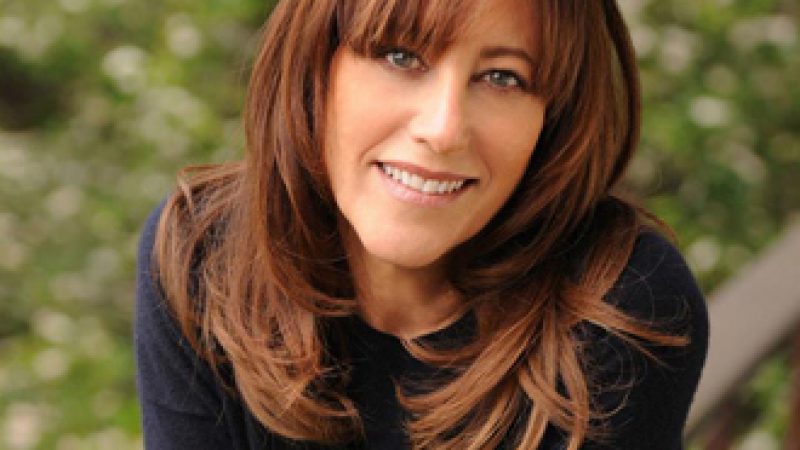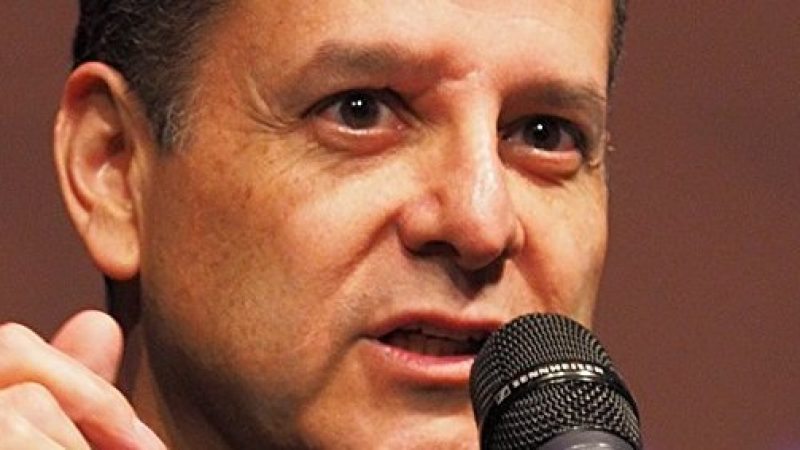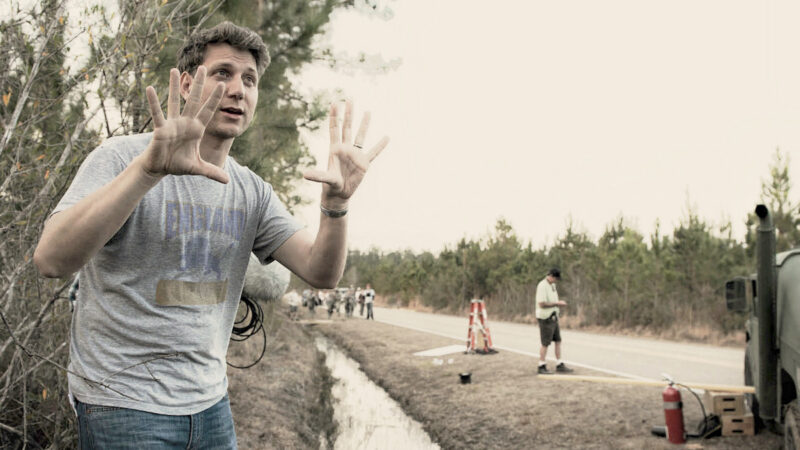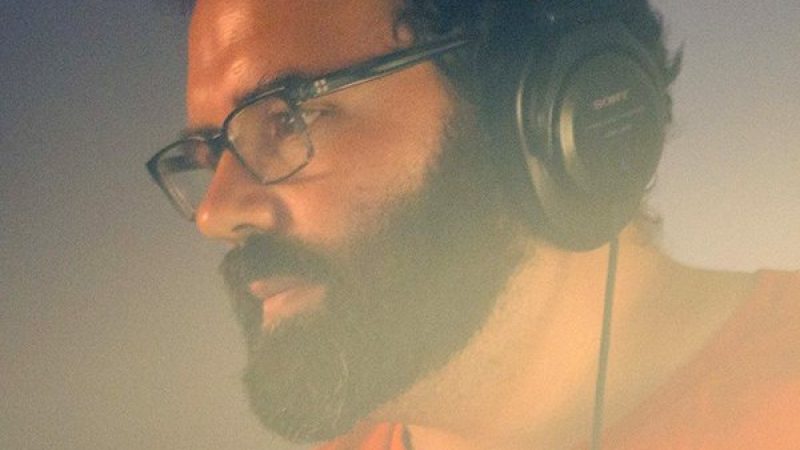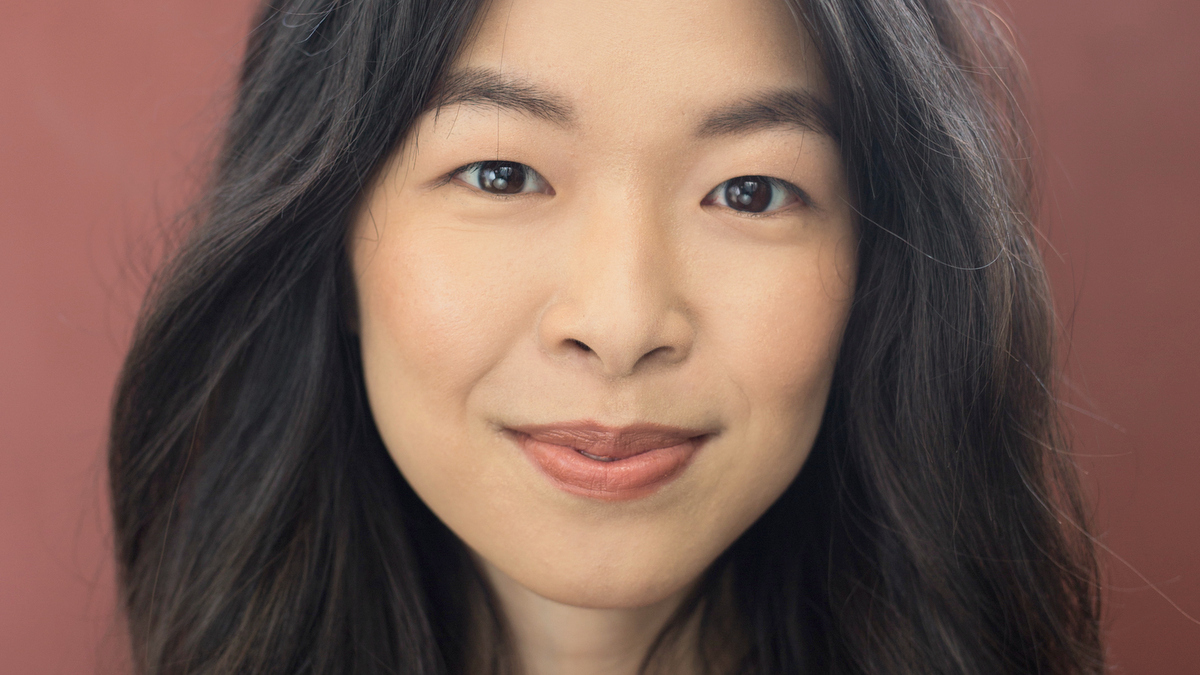
After a severe bio-chemical war broke out in the United States, a young survivor couple hiding in the woods must fight to have a future while they struggle to find food sources and deal with the consequences of the war. But an expected turn of events forces them to face a tough decision.
It’s not explicit in Winter Cabin that the exploration of human nature in the face of trauma and war is a reflection of the conflicts in the world we see today. But it doesn’t have to be. More and more we see young artists using all types of media to express political concerns.
In this beautifully crafted indie short film, the director Michael Huntsman and Taiwanese actress, writer and producer Yuching Tsai go beyond the basic, primal instincts to which we are reduced in many representations of war through film, and find the nurturing, serene side humans who face adversity. I had the opportunity to talk to Yuching about their process throughout the production of Winter Cabin.
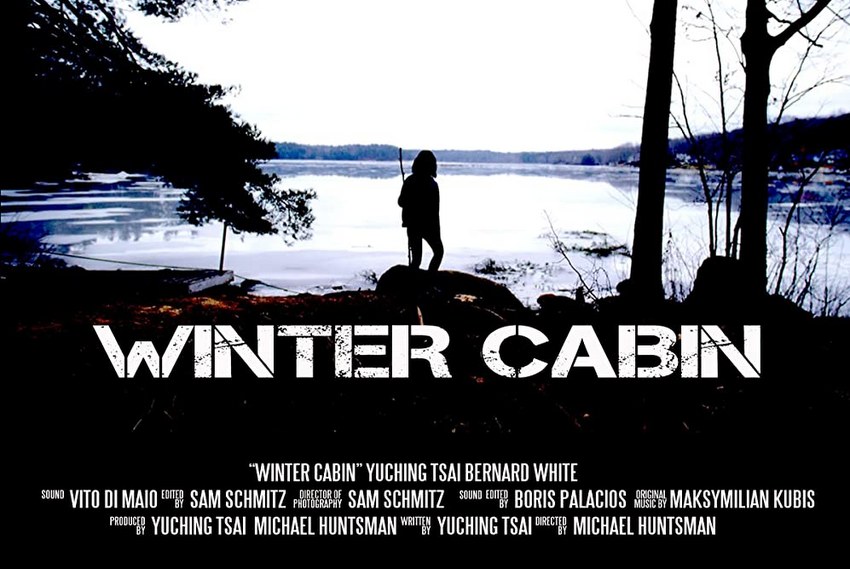
indieactivity: As a woman of color, there is an obvious hardship in this industry. Was it your intention to create a diverse and inclusive production?
Yuching Tsai (YT): Yes, definitely. I was hoping to create an opportunity to showcase artists of color on screen. I think all actors of color can relate to this struggle of not having equal representation in films. And some big companies concern that perhaps it would be less profitable or relatable for general audience to have minorities on screen or to tell the stories of minorities.
One of the goals of making this film for me is to hopefully show that we are all people and we can all relate to human experiences. Besides having myself and Bernard, who played Nolan, on screen. We also have talented female crew members, which is another underrepresented element in the film industry.
I’ve seen your work as an actor on stage. How was it for you to be working in a film production?interview question?
Yuching Tsai (YT): I love working on a film set. I can almost say that I like it more than being on stage. I love how much of a collaborative experience it is – everyone is working toward the same goal and every single person is important. I also love how we have to problem-solve as we go. We never know what is going to happen on the day of shooting. It is intense, stressful, and requires a lot of focus, but it’s so fulfilling.
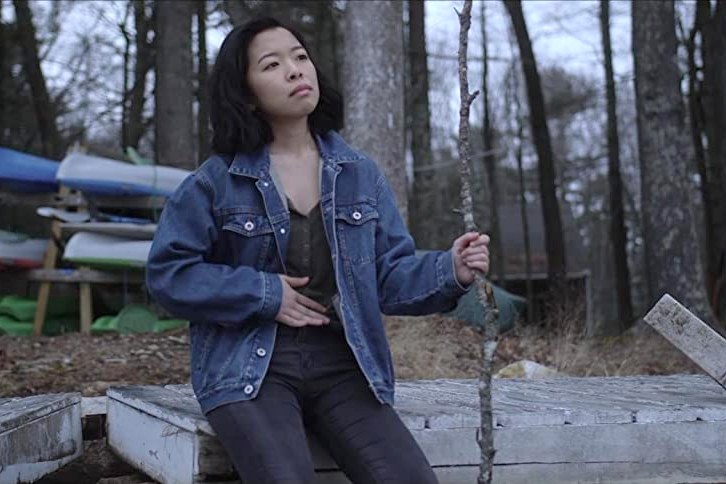
Also, being an actor on set is one thing and being a producer on set is another. I think being an actor is definitely a less stressful job for me because you have one job and don’t have to worry about everything else. As a producer, you have to worry about money, other people, every detail on set. Being both an actor and producer this time was a great learning experience – super challenging, but thank god I had an amazing team. And Michael is an amazing director. He tried his best so that I don’t have to worry too much on the production side, so I could focus on doing a good job as an actor.
How did you begin to write this script? What did you experience while writing Winter Cabin?
Yuching Tsai (YT): I began writing the script for a small film festival with my acting studio. I wanted to be a part of it. Initially, I had many different ideas in my head and it took me a while to decide which idea I wanted to move forward. The idea of the struggle of humanity at a life-and-death situation is something I find very heart-wrenching but also contains important messages. Plus, I couldn’t get the strong feeling out of my head, so I decided to explore it.
The experience of writing it was interesting. Once I had an idea and an outline, writing out the story was not difficult. I can sort of see the movie played out in my head, one moment after the other. It was easy for me with the first draft. I was emotionally very connected and that gave me a good flow. But, revisiting the story and revising it was the hard part. I found myself getting into my head, my insecurities, and even started avoiding it.
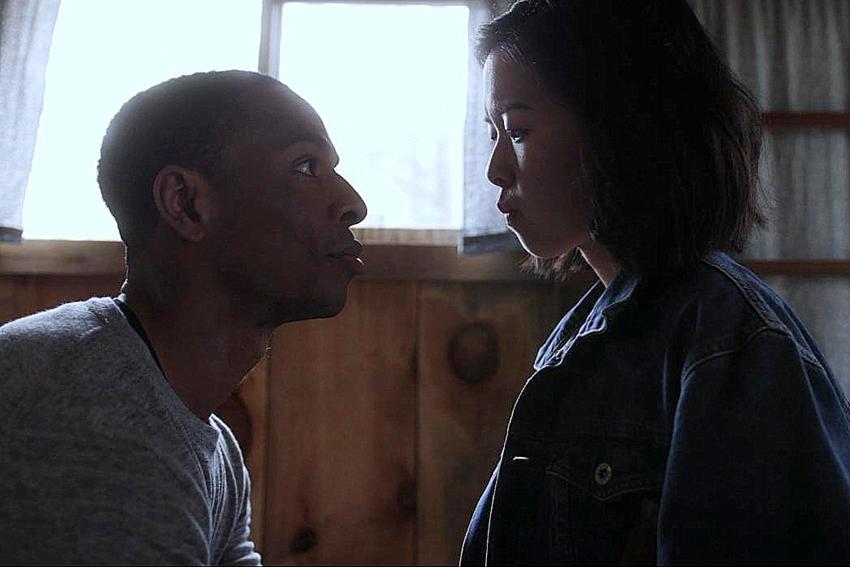
Eventually, I just forced myself to sit down and write it. Also sending it to my writer friends really helped. They gave me feedbacks and some contributions. I’m very thankful.
It seems like the movie explores a lot the feminine energy, at times opposed to the masculine. Was that intention set since the beginning of your project?
Yuching Tsai (YT): It’s very interesting that you said that. The initial set-up or intention I had for the female character Roxy was definitely for her to be a strong character, who is also vulnerable and feminine. I wanted to explore the idea of vulnerability and strength does not have to be mutually exclusive. I do recognize it is weird to call a female character strong since we don’t ever have to say that for males.
What I meant for Roxy is that she is mentally strong – she had gone through a lot, she is in distress, but she is still able to get through each challenge and make decisions that are best for herself or whoever she wants to protect. I don’t know if I had an idea of having a feminine energy opposed to the masculine one, but I definitely wanted to explore the dynamic between these two energies within one person, whether you are male or female, and also between Roxy and Nolan.
I wanted to allow Roxy to be the woman that she is, having the vulnerability when dealing with the biology of a woman, but be masculine at times when the situations require her to be. And, I wanted Nolan to be able to be tough, have that stereotypical masculine energy, but also feel free to be vulnerable when needed. And, I wanted to express that they will be there for each other no matter in what spectrum they are as human beings and know that it is okay.
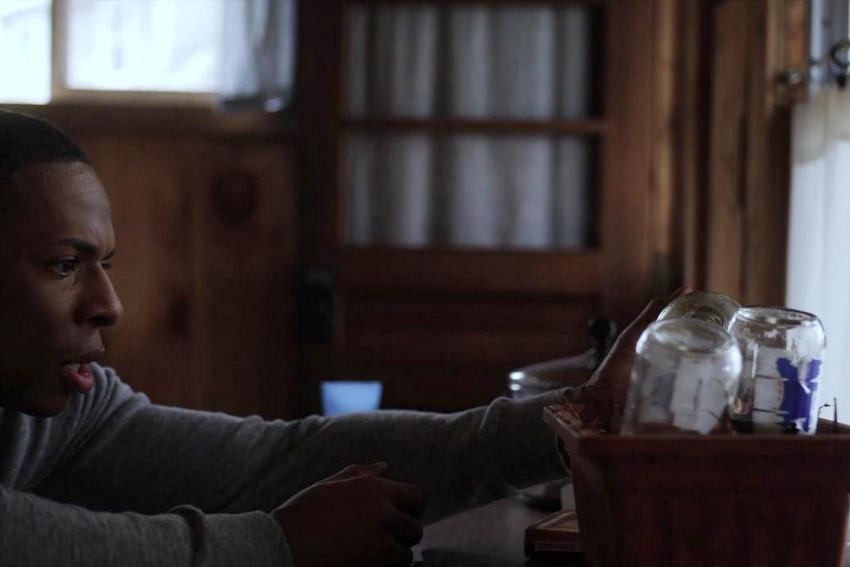
Where did your intention to work with a dystopian setting come from?
Yuching Tsai (YT): I think initially I didn’t have a clear “intention” to work with a dystopian setting per se. Like I mentioned earlier, I wanted to explore the humanity and love in a critical situation. However, I do think what has been happening around the world affected me deeply and had planted a seed in my head. The wars, the refugees, the immigration issues, the environment…etc. I think it is the desire to do something that had driven me on this project too.
How has the original idea for the project changed or evolved once the different stages of film production started?
Yuching Tsai (YT): It’s interesting that it changed, but did not change as much as I expected. I think it’s because I knew my budget, my limitations on this film, and when I first pitched the outline to Michael, he warned me that the film will change throughout the production and it might turn out to not be what I initially wanted. So, I think I was pretty prepared. I did as much as I could to be realistic even when I was writing the script.
Then during and after filming, what changed the most was the visual images I had envisioned. When we found the location, the images, of course, changed with the location. And from what worked and what did not in terms of cinematography, certain scenes got cut out or added on at the day of filming. That changed the script slightly. I would say the main idea did not change much, but the way of telling the story changed and mostly in cinematography. I learned to work with what you have and make the best of it.
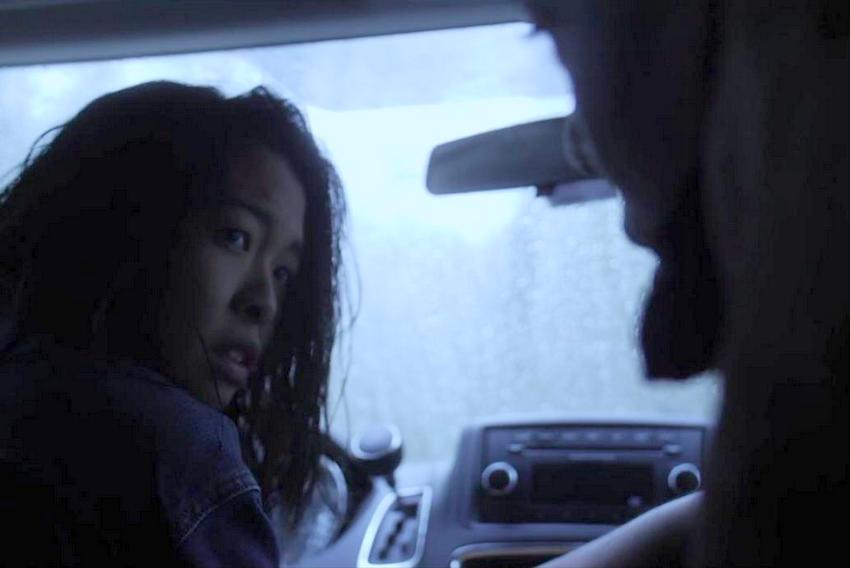
Your most recent projects on stage and behind the cameras have been about contemporary issues. Would you say you’re in a moment in your career in which you’re more driven to making performance art as a reaction to what you see?
YT: I think it’s always exciting to have the opportunity to work on projects that reflect your beliefs or on topics you care deeply about. I have been definitely working more on projects about contemporary issues lately. Some of which I created, but most of them I just happened to be cast in or asked to produce. I think this is a time when people, in general, are doing a lot of things reacting to the issues in the spotlight.
People feel freer to speak out or have the permission to turn their enthusiasm or frustration into something meaningful. Also, we live in a time when we have more access to different connections and resources. All of the above factors help me become more involved in performing art pieces that are relevant to real life.
In short, yes, I am driven to be in good projects that react to current issues, but I am also equally as interested in projects that are simply interesting, dynamic, and make you think and are not necessarily a reflection to the current issues.
Tell us what you think of the interview with Yuching Tsai. What do you think of it? What ideas did you get? Do you have any suggestions? Or did it help you? Let’s have your comments below and/or on Facebook or Instagram! Or join me on Twitter.
Follow Yuching Tsai on Social Media
Website
IMDb
Facebook
Instagram
MORE STORIES FOR YOU
Director Amy Glazer Brings Kepler’s Dream to Life
An 11 year old searches for a missing rare book from her grandmother’s library
How I Made My Film, ‘Fear, Love & Agoraphobia’ by Alexander D’Lerma
A Step by Step Filmmaking Process of Fear, Love & Agoraphobia
The Key Facts Behind How Jeff Nichols Made The Indie Hit MUD
Jeff Nichols gives himself directorial challenges to master on every project.

